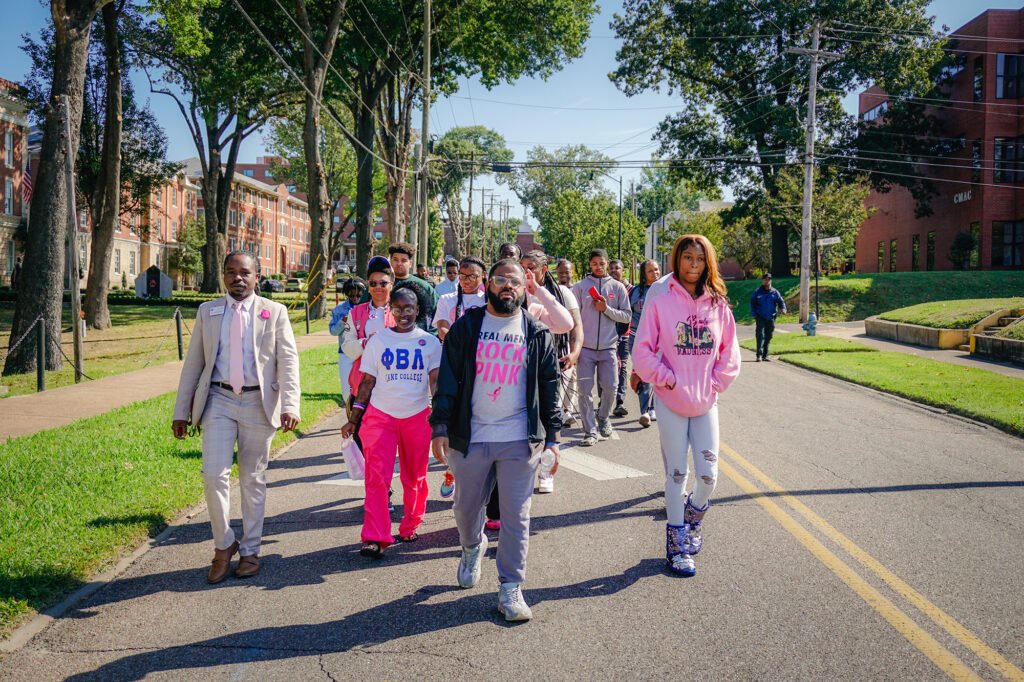How HBCUs are Sustaining Belonging Amid Uncertain Times
At a time when higher education is under immense scrutiny—financially, politically, and culturally—Historically Black Colleges and Universities (HBCUs) remain steadfast in their mission to serve, uplift, and innovate. These institutions, long anchored in principles of access, justice, and excellence, are not just weathering the storm—they are reshaping what belonging looks like on today’s college campuses.
Insight Into Academia reached out to HBCUs, and asked them to reflect on how they are maintaining inclusive, welcoming environments while navigating the shifting landscape of American higher education. Their responses highlight deeply rooted institutional missions, community-centered partnerships, and bold new strategies to support students and faculty alike.
From reimagining the college-to-career pipeline to building whole-community support models, these institutions are taking creative, mission-driven approaches that center on student success. Their efforts shows that fostering authentic inclusion is not just about campus culture—it’s about leadership, innovation, and a refusal to compromise on the values that have guided them for generations.



How does your institution’s history and mission uniquely contribute to your approach in cultivating an inclusive and welcoming environment for all?
Savannah State University
Founded in 1890, Savannah State University (SSU) holds the distinction of being Georgia’s first public Historically Black College and University—and the first institution of higher education in the city of Savannah.
For 135 years, SSU has been a beacon of excellence. Rooted in a mission to prepare productive members of a global society through rigorous instruction, scholarly research, meaningful service, and civic engagement, SSU has remained steadfast in its commitment to student success. Its unique location—nestled within Savannah’s coastal salt marsh—offers a living laboratory for innovation and exploration, enriching generations of students through transformative, hands-on learning experiences.
Paul Quinn College
As the nation’s first and only Urban Work College, Paul Quinn College is imagining, re-defining, and creating what higher education in America looks like. The college’s approach brings whole families and students from an early age to be exposed to college life with the assumption that they will pursue higher education—regardless of their family background or economic situation.
Additionally, Paul Quinn is developing an innovative housing model and companion mixed-use community on campus—a city within a city—where housing, retail and even service members like police and teachers will live.
U.S. Census data show that the surrounding area has a 25.2% poverty rate and more than 30% of those living in poverty are 18 or younger. Paul Quinn’s campus community will allow children and families to thrive in a safe environment with quality schools, housing and opportunities.
Morehouse College
Morehouse College’s legacy as the only institution founded to educate men of color shapes its unwavering commitment to inclusion and equity. Since 1867, the College has championed social justice, intellectual rigor, and servant leadership.
With a student body where 60% come from low-income households, Morehouse fosters upward mobility through a nationally ranked core curriculum and robust support systems. Its record of producing Rhodes Scholars, Fortune 500 recruits, and top doctoral candidates reflects a mission rooted in empowering marginalized communities.
Morehouse’s environment cultivates belonging, purpose, and excellence, while addressing systemic inequities through education, advocacy, and leadership development.
What Is a Work College?
Work Colleges are a small but distinct group of four-year liberal arts institutions where all resident students participate in a structured work-learning-service program throughout their enrollment. Federally recognized and student-centered, these colleges integrate academic study with meaningful work experiences and community service, aiming to develop responsibility, reduce educational costs, and enrich the overall college experience.
Unlike traditional institutions, Work Colleges require every residential student to hold a job—either on campus or through approved off-campus placements—as part of their education. The model is built on the idea that combining work with learning fosters practical skills, strong work ethics, and a commitment to community.
Lane College
Lane College’s history, founded in 1882 to educate newly-freed slaves, is deeply rooted in the pursuit of access, equity, and empowerment through education. This legacy informs a mission centered on developing the “whole student” in a supportive, faith-based environment.
The college embraces belonging and equal opportunity as foundational values, fostering a campus culture where every student feels seen, heard, and valued. Through intentional mentorship, culturally responsive teaching, and a strong sense of community, Lane College creates a welcoming space that honors its past while preparing all students to thrive in a global, interconnected world.
How does your institution create spaces where students and employees feel seen, heard, and supported?
Claflin University
At the center of everything we do is a system of values informing and guiding all policies and programs. These values, expressed through our decisions and actions, are defined by five overarching guiding principles: commitment to excellence: we strive for excellence through creativity, innovation and efficiency that allow for optimization of resources.
Commitment to valuing people: we value people by providing a safe, wholesome, and healthy environment that fosters mutual respect, diversity, and inclusion.
Commitment to being student centered: we focus on all aspects of student life including student-centered education by embedding skills that foster life-long learning and independent problem solving.
Commitment to exemplary educational programs: we provide exceptional programs and an effective learning community by ensuring we represent the highest standards of academic excellence. Commitment to fiscal accountability: we promote and foster a culture of compliance, integrity, and fiscal responsibility throughout the university.
What new partnerships or recent ventures have been impactful in advancing your mission or serving your community?
Central State University
Central State University (CSU), Ohio’s only public HBCU and a proud 1890 land-grant Institution, has earned the prestigious Carnegie R2 designation, recognizing its growing impact in research. Recent advancements include launching a federally funded semiconductors and microelectronics internship program and joining the national HBCU-Chips Network to expand opportunities in emerging technologies.
Rising senior Kayvon Adderley was honored for research excellence through this initiative. Additionally, Dr. Colin Lasu was selected for the Fulbright-Hays program in Ghana, further strengthening CSU’s global academic reach. These milestones reflect our deep commitment to innovation and shaping the future of higher education.
Drake State Community and Technical College
Drake State’s LPN Launch Program with Huntsville Hospital gives students hands-on training and guarantees them a job with the hospital upon completion. The program is a win for students who get experience working in their future place of employment and learn the standards of the organization first-hand. It is also a win for the employer who has a pipeline of quality LPNs to join their ranks. Additionally, becoming a member of the Thurgood Marshall College Fund has helped students earn scholarships and access professional development opportunities.
North Carolina Central University
North Carolina Central University (NCCU) has built strategic partnerships to advance its mission and support student success. A $1 million grant from Google supports the nation’s first AI institute at an HBCU, offering mentorship and workforce training.
IBM and the IBM-HBCU Quantum Center provide training in emerging technologies, while Cisco’s $9.4 million gift enhances cybersecurity infrastructure. Intel’s $5 million investment supports a tech law and policy center. NCCU also partners with Project Kitty Hawk to expand flexible online pathways for adult learners. These collaborations offer hands-on experience, certifications and access to innovation, aligning with NCCU’s focus on academic excellence and transformational growth.




















